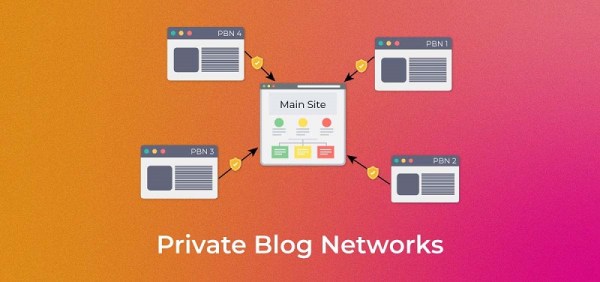Link building refers to the practice of obtaining hyperlinks from other websites to your own webpage. The secret to an effective strategy is creating appropriate content and link building outreach. Applying this method will help your site obtain high-quality links and increase the exposure of your landing pages and site as a whole.
Ecommerce websites focus on selling products and pay little attention to their content. Therefore, most of them misunderstand the concept and benefits that link building provides in improving their sites. Nevertheless, ecommerce websites are recommended to create quality backlinks from credible websites to reach a higher search rank.
Link building is challenging for e-commerce websites. There are few chances to obtain connections to product and category sites. But we are here to help you out. Here is the ultimate guide to five ecommerce link building strategies your business should apply.

Related post: What is link building?
Utilize Product Feedback
Link building is challenging for e-commerce websites. Using the product feedback approach, you may uncover articles ranking where you’re not featured. Then, in exchange for their input, providing benefits such as products is recommended.
Once you get them to prefer your products, it is easier for you to ask them to mention your business in the articles they have written. Fortunately, most of the time, they will get links to your site if they feature you.

However, the essential aspect ecommerce websites need to focus closely on when applying this ecommerce link building strategy is product performance. Business must ensure their product has unique features that can stand out in their competitive market. Be aware that bloggers will not even consider offering you link building if they experience higher-quality products from other businesses.
Here are the actions to take to apply the link building strategy on ecommerce websites efficiently:
- Brainstorm different product categories you sell.
- Look up blog posts where you are not mentioned on Google
- Public your product’s feedback.
It is simple to come up with product category ideas. Products like smart TVs and speakers are examples of smart home goods that you may sell.
Continuously search Google for the greatest product lists that do not include your ecommerce websites. It suggests refraining from directly proposing to deliver authors your products in exchange for a backlink in the pitch. Google evaluates the exchange of “goods or services for links” as a link scheme, which might result in penalties. Instead, offer to provide them a sample in regards to their feedback.
Launch Guest Post Campaigns
Many SEO experts always acknowledge the fact that guest posting is less productive now than it previously was. Back to the previous digital marketing trends, link building was simpler to observe overall improvement in search rank and organic search.
With the massive development of sites, it is much more competitive now. In addition to being more careful, Google’s rivals have improved their ability to identify and eliminate low-quality material and spam backlinks.
If ecommerce websites prioritize quality over quantity, guest posting is an excellent way to link building. The appropriate strategy that Google has adopted regarding page-ranking variables has unquestionably benefited marketers who make a significant effort to produce valuable, educational content and publish it on high-authority websites.

It would be best if you looked for appropriate ecommerce websites in your niche to identify high-quality websites for your guest post in advance. One essential tip is to identify the type and keywords you are aiming for in your link building; Google Search or off-page SEO service with professional experiences to offer you the best-developing approach with an affordable budget.
Another strategy is to examine the backlink profile of a reputable ecommerce website in your niche. You may find websites suitable for your website’s link building by looking at the backlink profile.
Once you have established a list of relevant ecommerce sites, it recommends getting in touch with the content manager to determine whether they permit your articles. While many websites feature a “Contact Us” form, reaching out to the content manager via email is more efficient. To obtain the proper email addresses of site content managers, you can access LinkedIn contacts or utilize an email finder.
Speak with the editor and present your proposal for a guest article. The editor will typically send the guest blogging instructions, which often include the tone, themes, and amount of hyperlinks.
Track Down Unlinked Mentions
Unlinked mentions are references to your company or products made online without connecting to your website. For instance, mentioning the iPhone or AirPods without including a link to apple.com.
People forget to provide link-building occasionally. Therefore, do not miss the chance when a situation occurs. Ask the website’s owner for permission to include a link to your ecommerce websites, frequently, they would be willing to do so.
You may receive notifications anytime someone creates a webpage with your company name by setting up a Google alert for your company. Based on the kind of source, language, location, and frequency of email delivery, you may modify the alert settings.

For 2 reasons, you can frequently uncover simple link possibilities on sites with unlinked remarks.
- Their authors are more willing to give you a chance because they are already familiar with your brand.
- They already like your product – Not all unlinked remarks have this in common, but many do.
- Researching is necessary before you can pitch them.
Finding unlinked mentions is a simple link-building approach, but it only works for high-reputation businesses that can benefit authors.
Create Affiliate Programs
A promotion and an affiliate marketing scheme are similar in that you delegate the selling to others. Affiliate marketing, however, is distinct from promotions or partnerships and requires you to pay your affiliate sites a percentage of their sales.
What does this have to do with link building? Most content creators use an affiliate link, a hyperlink that leads to a specific product on ecommerce websites. This is a form of advertisement that tracks visitors’ traffic and behaviors.
For instance, take Amazon as the most popular affiliate partner among ecommerce websites. If you pay attention to blogs, YouTube videos, and Facebook posts, you will see many attached links with access to the products mentioned on the Amazon page. Since Amazon’s affiliate marketing program is so well-liked, many people successfully make money as affiliates through it.

Affiliate links are valid link-building that improve how Google rates your website and offer opportunities to your potential affiliate partners to make some extra money. For instance, a popular influencer posts an affiliate link to your website might raise the domain rating of your website. This benefits your business by increasing organic traffic and developing your backlink profile.
Analyze Competitors’ Best Links
Depending on your business or specialty, it is necessary for you to identify your competitors and analyze their actions to understand better their marketing plan towards backlinks and SEO.
Choosing the best link-building tools will allow you to evaluate competitors’ backlink profiles as well as the content they prioritize on their sites. This link-building strategy for ecommerce will allow the business to enhance its guest post approach through the data collection analysis from competitors’ backlinks.
Since SEO is a continuous activity, be aware and keep up-to-date with any actions taken by your competitors. The appropriate ecommerce websites routinely evaluate the performance of their competitors to serve as a benchmark for strategy optimization and long-term viability.

Frequently Asked Questions
What are link building strategies?
After understanding the elements that determine your business website’s rank in link building, it is crucial to create an efficient strategy. Alongside link bait, there are 4 significant link-building techniques that can help improve your website’s ranking:
- Creating linkable assets is a strategic approach to generating backlinks for your website. This refers to the intentional creation of valuable content that attracts hyperlinks from other websites, thus naturally generating backlinks.
- Outreach involves reaching other website owners and requesting a backlink of your content. This process can be email outreach, social media outreach, and influencer outreach.
- Becoming a source means positioning yourself or your brand as a source of valuable information, expertise, or thought leadership in your industry. Reporters, journalists, and bloggers frequently reference sources when creating content, increasing the chances of securing a quality link.
What are the types of link building?
Link building refers to the process of securing hyperlinks from other websites to your own website. These links facilitate greater online visibility and depend on the links’ quality, quantity, and relevance. The 3 different types of link building include:
- Backlink: A hyperlink directing users to your website from another website, an essential factor in search engine ranking, and the quality and authority of the referring website impact the link’s value.
- Outbound link: A hyperlink directing users from your website to another. Outbound links are helpful in providing additional information, citations, and references for your content.
- Internal link: A hyperlink directing users from one page to another within your website, improving the structure and navigation of your website and extending users’ website visit duration.
What kind of link-building strategy is best for SEO?
Undoubtedly, backlinks have the most influence on a website’s SEO. It is beneficial if your website has gained more link access from other sites.
Backlinks can take many different forms. Although blog comments and social media postings can be considered backlinks, they are often deficient. Editorial links from other people’s blog entries are the best type.

Link building is a critical aspect of SEO specifically and Marketing in general. No matter what your business industry is, link building will support increasing page ranking and online organic search most efficiently. Even though ecommerce websites focus on advertising their products instead of content, implementing link-building is proven effective in improving brand awareness.
Conclusion
In short, the five ecommerce link building strategies – Guest Feedback, Guest Post, Unlinked Mentions, Affiliate Programs, and Competitors’ Best Links – are the effective approaches that help your ecommerce site to stand out in the competitive market.
Co-Founder & General Manager @ ROI Digitally






